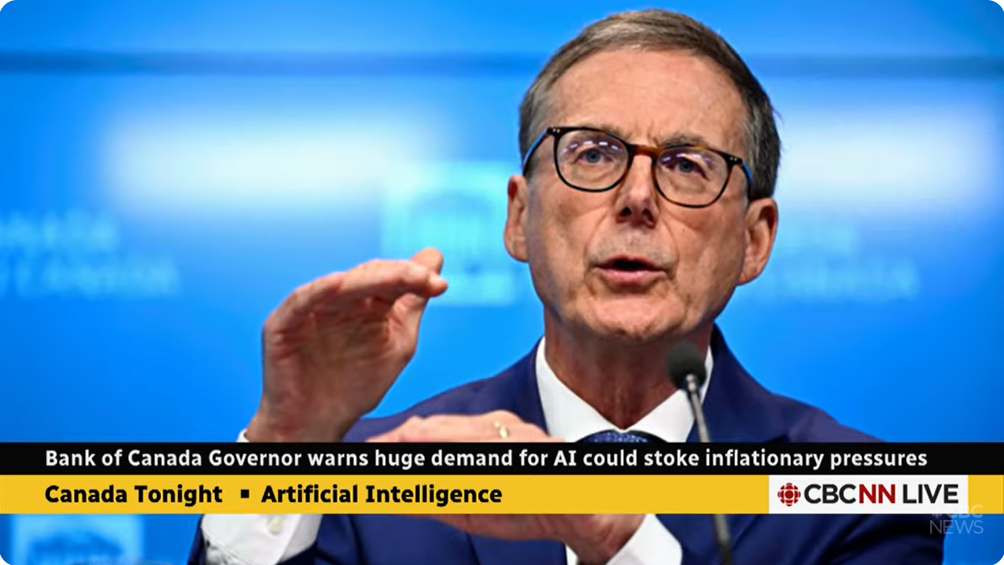Bank of Canada Governor Tiff Macklem warns of short-term AI risks to inflation and financial stability.

Bank of Canada Governor Tiff Macklem recently stated that artificial intelligence (AI) investments could lead to short-term inflationary pressures and potentially cause financial stability issues.
Macklem explained that AI could influence how businesses set prices, pointing out that digitally intensive firms are already adjusting their prices more frequently than less digitally focused companies.
“Central banks need to be closely attuned to how AI is affecting inflation, both indirectly through overall demand and supply and directly through price-setting behavior,” Macklem noted.
Central banks prioritize price stability as part of their mandate, and Macklem elaborated, “In the short run, AI could boost demand more than it adds to supply through faster productivity growth. And if that happens, AI adoption may add to inflationary pressures in the near term.”

AI Could Pose Financial Stability Risks
Macklem also highlighted the potential financial stability risks posed by AI adoption.
While banks and financial institutions are investing in AI to enhance customer service, compliance, and risk management, he warned that operational risks might become concentrated in several third-party service providers.
This could lead to widespread issues if one of these providers faces a problem.
He added, “The predictive ability of AI can deteriorate unexpectedly, suffer from hallucinations or be biased and discriminatory. And AI makes everything move faster, which could amplify severe market runs and herding behavior in times of market volatility.”
AI May Lead to Job Displacement
Macklem expressed concern that AI could reduce non-automated tasks, leading to job displacement.
While displaced workers could potentially move into more productive roles, he noted that pessimistic estimates suggest AI might have only a limited impact on productivity.
He also warned of negative consequences such as increased internet addiction and the use of AI by malicious actors, which could significantly reduce its overall positive impact.
“As AI becomes more established in the economy and its impacts more transformative, it could end up destroying more jobs than it creates. And the people who lose their work to automation may struggle to find new opportunities. This is a concern for us all,” Macklem stated.
Bank of Canada’s Use of AI
The Bank of Canada is already using AI to forecast inflation, track economic activity, and improve operational efficiency.
Macklem emphasized AI’s vast potential for analyzing consumer behavior and business pricing strategies.
He acknowledged the uncertainties surrounding AI but concluded, “We need to better understand how AI will affect productivity, employment, price-setting behavior, and inflation. This work will take time. In the interim, we should use increasingly informed scenarios to help manage our uncertainty.”
